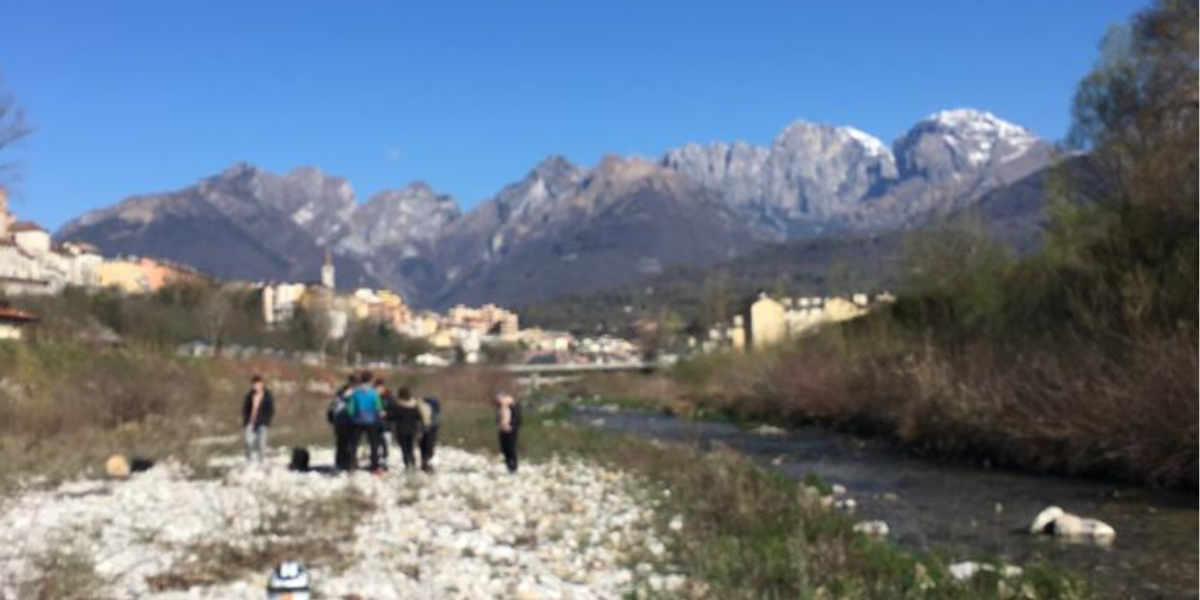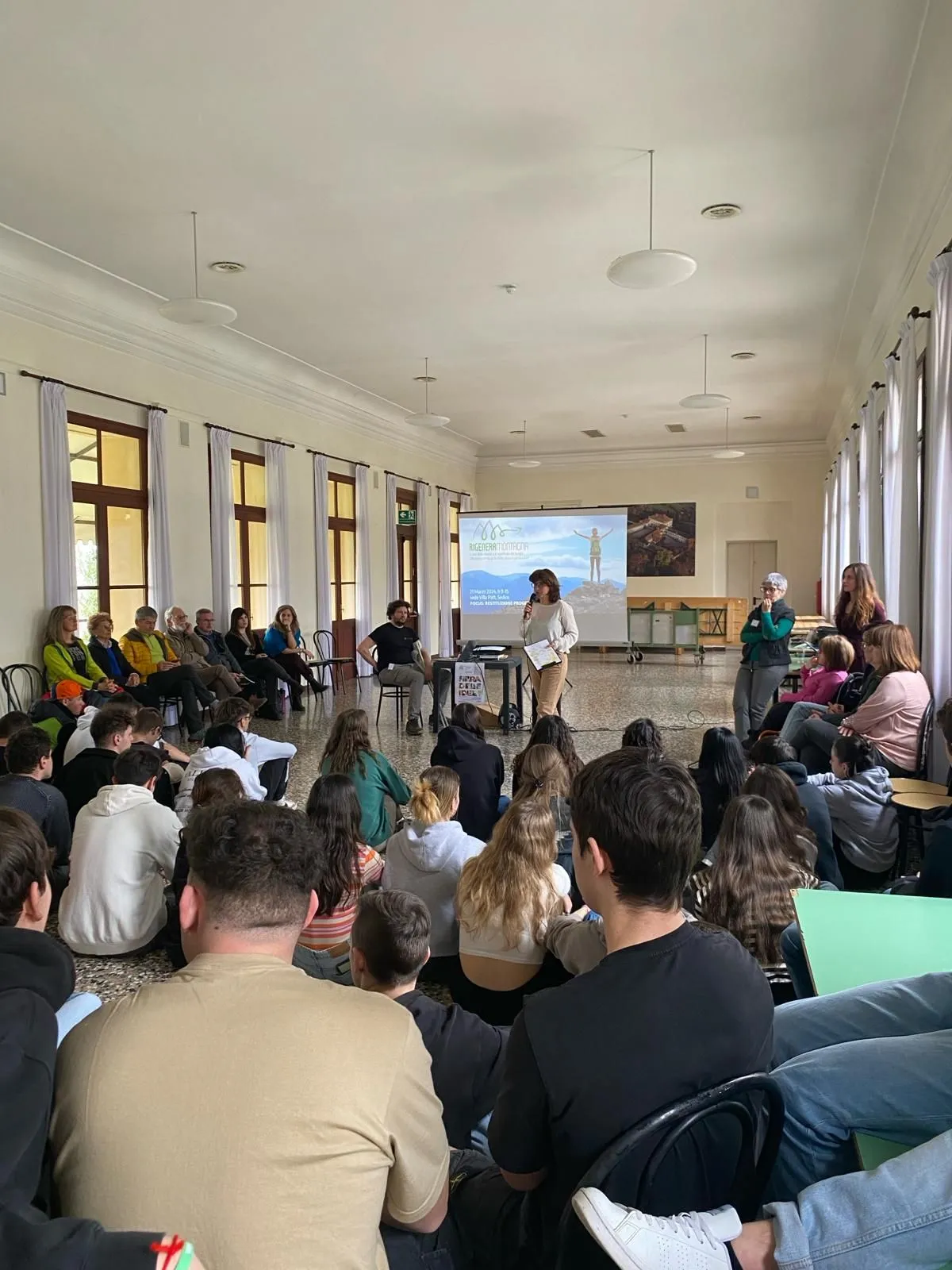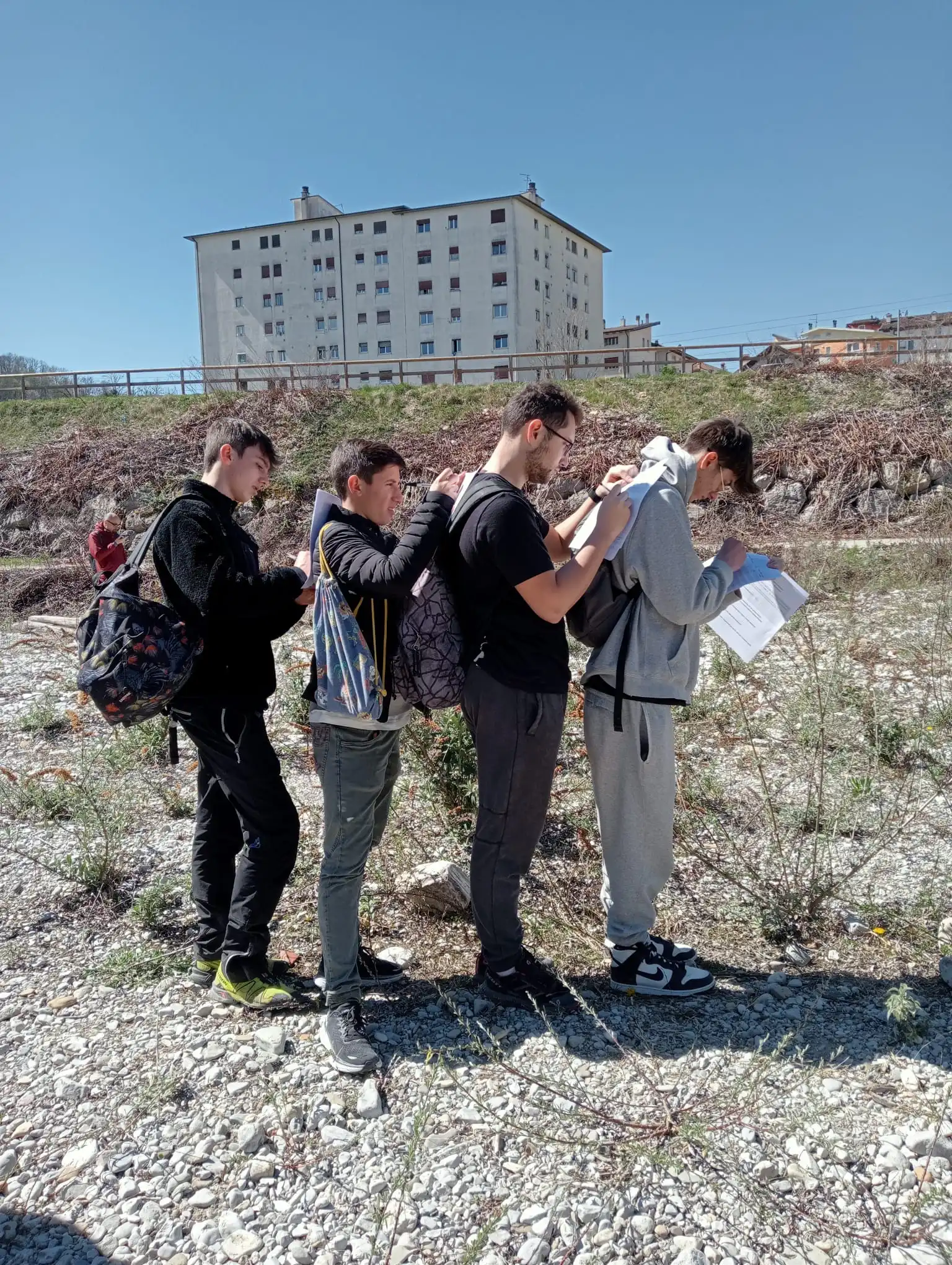The use of resources and the meaning of places through the eyes of youngsters
- Tourism
- Cariverona | Fondazione Angelini
- 2022-2024
- www.angelini-fondazione.it

Is the mountain still a desirable place to live? How do younger generations perceive it, given that many people have been leaving mountain areas in recent years?
The “Rigenera Montagna” project, promoted by the Fondazione G. Angelini, focuses on the future of rural and mountain areas in Veneto, specifically the Belluno region. The project aims to facilitate individual and collective co-creation and transformation among young generations.
The project
For two years, girls and boys from the Belluno area have been accompanied on a journey aimed at the future of the mountains, training their eyes and discovering a vision of regenerating places’ natural and human resources.
Through 30 meetings, including seminars and experiences in nature and on farms, young people from the area’s high schools acquired and processed specialized data but helped create and voice new visions of the area. The phases of the project saw young people engaged in training, field experience and participatory processing. In the spring of 2024, they gave back what they had done to the community during “The Fair of Ideas,” a gathering characterized by media and artistic communication.
The boys and girls became more aware of environmental issues, from the climate crisis to the loss of biodiversity to the well-being derived from forests in their territory. In addition, they developed responsible behaviours and joined territorial networks and alliances for the community.
Our contribution
For two years, girls and boys from the Belluno area have been accompanied on a journey aimed at the future of the mountains, training their eyes and discovering a vision of regenerating places’ natural and human resources.
Etifor played a pivotal role in the project, particularly in the areas of participatory and facilitation activities, significantly enhancing the project’s outcomes.
During the two-year project, Etifor took on several tasks, including:
- Planning and managing the facilitated re-processing phase at the close of the field experiences with all classes participating in the project;
- Accompanying colleagues responsible for classroom training and field experiences with planned interventions to support the management of boys/girls;
- Coordinate the monitoring of the project through the creation of a vademecum and the management of various survey instruments;
- Support G. Angelini in the various stages of the project, from its initial planning to the final collective give-back event.



